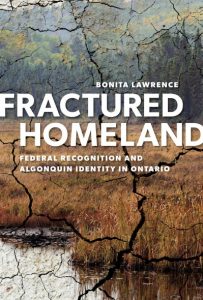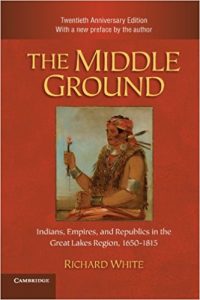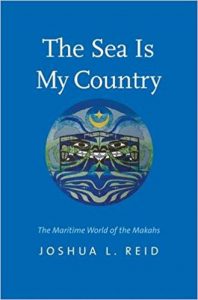
Lawrence’s first book, “Real” Indians and Others, was widely read when it was released in 2004. She has always worked at the boundaries of place, peoplehood, and recognition, and this book is no different.

Lawrence’s first book, “Real” Indians and Others, was widely read when it was released in 2004. She has always worked at the boundaries of place, peoplehood, and recognition, and this book is no different.

This is a biggie – easily the most influential work in American Indian history (term chosen deliberately) of the last quarter-century. As Paige said, we’d like to you read it, and the articles responding to it, as much for analysis of the particularities of historical events as for the broader conceptual and ethical questions we often speak about.
Here’s what we’d like you to read:
Everyone: Chapters 1-4, 7, and Epilogue.
Dane, Jakub, Elspeth, Nicole, and Henry: Chapters 5, 6, and 8.
Nick, Rosie, Vicki, and Michael: Chapters 9, 10, and 11.
We realize that’s a lot, especially in combination with the additional readings. Do your best.
These four pieces each take on the prehistory-history divide and illustrate the necessarily interdisciplinary approaches required for this kind of work. What lessons might we bring from earlier weeks to our assessment of these works? How is doing more “distant” history different, if at all, from the kinds of research and writing we’ve already seen? Are the stakes at all different? Lastly, what sorts of interventions are these particular works trying to make?

In this widely acclaimed book from Yale University Press’s Henry Roe Cloud series on American Indians and Modernity, Reid, of Snohomish Coast Salish ancestry, offers a rich history of the maritime world of the Makah people. The Sea Is My Country illustrates the ways in which the Makah shaped the economy of the Northwest Coast while also maintaining their ancient relationships to both sea and land. So far this term, we’ve seen collaborations with a clan and an individual; now we will be reading a work created in close relationship with a nation.
Hello everyone,
Paige and I wanted to post these as a way to get our conversation rolling on Tuesday, and to signal the kinds of questions we’ll be asking you to post yourselves as we progress through the term. Thanks!
Coll
From the Smith, O’Brien, Lomawaima, and other readings, begin to construct a history of history. In what ways is our discipline coterminous with, complicit in, and constitutive of colonialism as it manifests at local, national, and global levels?
Taking into consideration the very trenchant critique of trauma-based studies launched by Tuck and Yang, how do we balance a need for surfacing the history of colonialism and bearing witness (perhaps problematic phrasings in and of themselves) with a sensitivity to the concerns raised here? What is a way forward?
Our colleague Daniel Justice uses terms like humility and empathy as important features of ethical and smart scholarship. What role do you feel (pun intended, perhaps) these more affective components of our lives should play in our intellectual work?